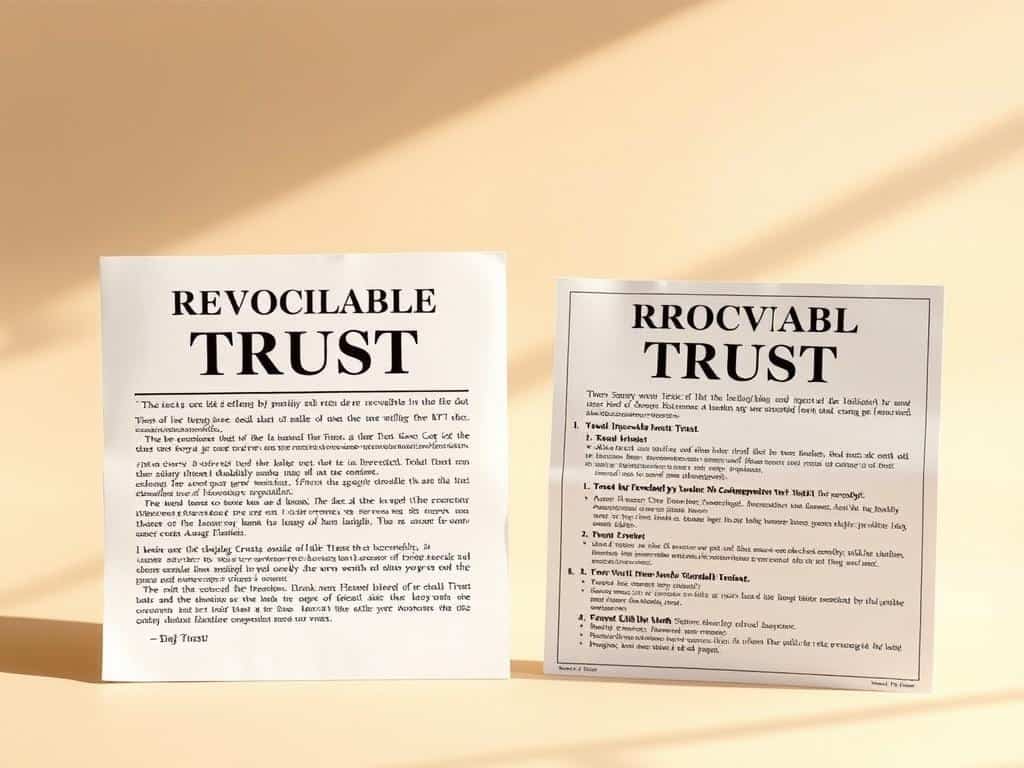When I started learning about estate planning, I felt overwhelmed. This was true, mainly because of my floating assets. One evening, while trying to understand my grandmother’s old lake house, I realized something important. Setting up a trust could help keep this special asset in our family.
The thought of going through probate scared me. I knew I needed a better way. By creating a trust, I could control how and when my assets would be passed on. This way, my family’s future would be safe and in line with my wishes.
This decision made me curious about family trusts. I learned how they affect wealth transfer and asset management. Along the way, I found legal tips that helped shape my approach to managing wealth and securing my family’s financial future.
Key Takeaways
- Understanding the basics of trusts is vital for effective estate planning.
- Trusts can simplify the transfer of floating assets and protect your legacy.
- By avoiding probate, trusts save time and maintain privacy.
- Family trusts can be tailored for specific needs, like education or major life expenses.
- Legal guidance can enhance the benefits of setting up a trust.
Understanding Trusts and Their Benefits
Trusts are key in estate planning, giving control over who gets what. They come in many forms, each with its own benefits. Knowing about trust funds helps me plan better for the future.
What is a Trust Fund?
A trust fund is a legal setup where a trustee holds assets for others. The person who sets it up, the grantor, puts in the assets. The trustee then follows the grantor’s rules to give out the assets.
Advantages of Using Trusts for Asset Transfer
Trusts make transferring assets easy and quick. They skip the long probate process, so beneficiaries get their share fast. Trusts also let you set rules for when and how assets are given out, helping protect younger people from bad decisions.
How Trusts Enhance Estate Planning
Trusts are great for estate planning because they give you control over your assets. You can use them to support causes or help dependents in specific ways. They also help reduce estate taxes, keeping more wealth for your family.
Types of Trusts for Your Floating Assets
Choosing the right trust is key to managing and sharing my floating assets. There are mainly revocable trusts, irrevocable trusts, discretionary trusts, and support trusts. Each has its own purpose, making it important to know the differences for good estate planning.
Revocable vs. Irrevocable Trusts
Revocable trusts are flexible, allowing me to change or end them while I’m alive. This control is great if my life situation changes. But, I should know that these trusts are taxed and can be reached by creditors.
Irrevocable trusts, on the other hand, are less flexible. I can’t change or close them without my beneficiaries’ okay. This means my assets aren’t taxed and are safe from creditors, which can be a big plus.
Understanding Discretionary and Support Trusts
Discretionary trusts let the trustee decide when and how to give out money. This is good for beneficiaries who might not handle money well. It lets the trustee adjust based on the beneficiary’s needs.
Support trusts are for covering basic needs like health, education, or living expenses. They help ensure money is used wisely. Knowing the purpose of each trust helps me plan my estate better.

Family Trusts: A Strategic Option for Wealth Transfer
Family trusts are key in wealth transfer strategies. They help families manage assets well, ensuring a smooth handover to the next generation. By setting up family trusts, individuals can control how their assets are shared, securing their financial legacy.
Defining Family Trusts and Their Purpose
Family trusts protect wealth and help it pass smoothly between family members. They let me decide how assets are given out, making it easier to manage family resources. This setup also helps avoid taxes, keeping more money in the family.
Family trusts can also set aside funds for future needs. This way, my children and grandchildren will have the resources they need when they grow up.
Leveraging Family Trusts for Education and Major Life Expenses
Using family trusts for education funding is a smart move. It ensures my descendants can get a good education without financial worries. By setting aside assets for education, I know they’ll have access to quality learning.
Family trusts can also help with big life expenses, like buying a home or starting a business. This planning helps my family face life’s challenges with confidence.
Conclusion
Setting up a trust for my floating assets has been key to managing my estate. Trusts are great for estate management, protecting and distributing assets. By knowing the difference between revocable and irrevocable trusts, I’ve made my estate plan fit my needs.
Using family trusts has also made my family’s financial future more secure. It helps with education and big life expenses. Trusts protect my assets and reduce taxes, supporting my family’s well-being.
Creating a trust has greatly impacted my financial legacy. As I deal with wealth transfer, trusts protect my assets and give me peace of mind. They ensure my family’s future is secure.



